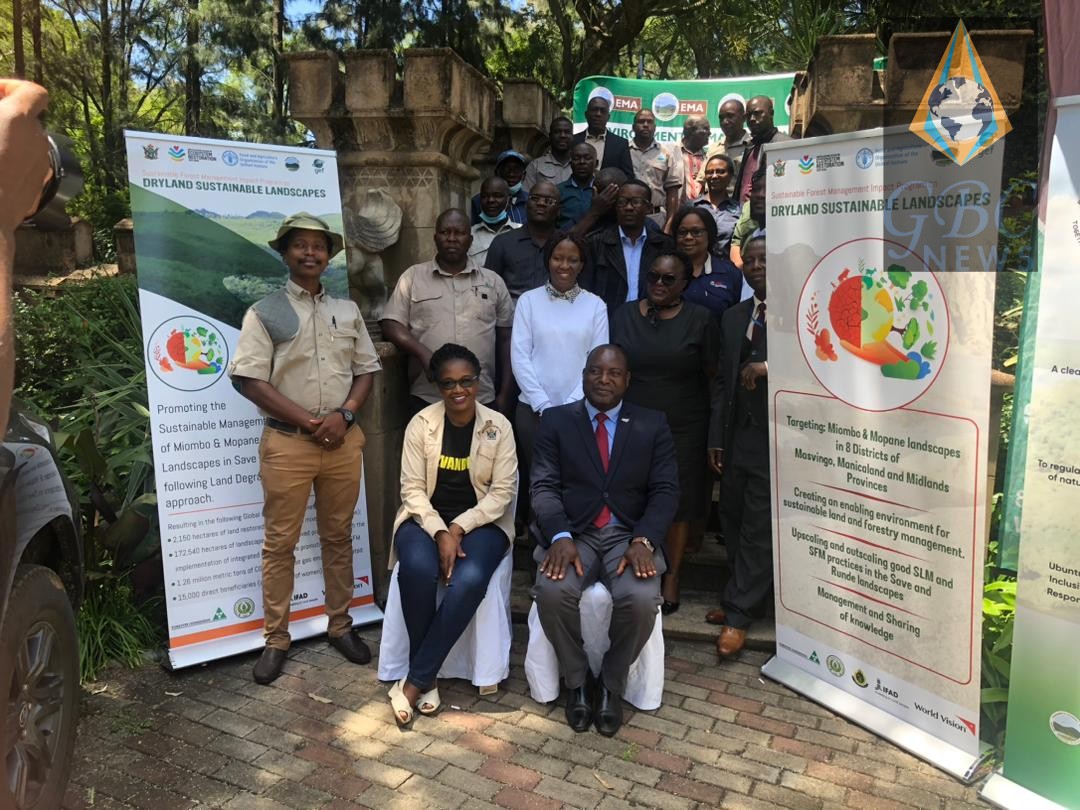Angela Nothando Mlotshwa and John Ndlovu
Zim GBC News Reporters
The Ministry of Climate, Tourism, and Hospitality Industry in conjunction with the Environmental Management Agency (EMA) held a National Environmental Action Plan (NEAP) workshop at a local hotel in Bulawayo.
The main objective of the NEAP, was to validate and to discuss the current status of the document.
NEAP is a strategy for set aside for National Council for Sustainable Development (NCSD), all ministries, and institutions at all levels are partaking to integrate environmental considerations into policies, programs, and investments.
The goal of the policy is to avoid irreversible environmental damage, maintain essential environmental processes, and preserve the broad spectrum of biological diversity to sustain the long-term ability of natural resources to meet the basic needs of people, enhance food security and reduce poverty.
The meeting kicked off with Director of EMA Steady Kangata stating the reason for the initiative, which was brought in to create and provide a clean, safe and healthy environment for all and ensuring that all local bodies and stakeholders are actively involved.
“The plan is founded on the need to provide a clean, safe, and healthy environment, ensure a balance between all the pillars of sustainable
development and participation of all key stakeholders including the general public in environmental management.”Kangata said.
The Director of the Environmental Management Agency further encouraged members from different sectors present at the event to be responsible and join hands with the Ministry of Environment and EMA in spearheading the initiative as it requires constant engagement and teamwork.
“Ladies and gentlemen, the environment is a shared resource whose management calls for shared responsibility and vision. This current process brings together all the environmental plans developed at the local level and sector priorities into a national
document. Ladies and gentlemen your participation in this final validation process are very much appreciated.”
“We should all work together toward producing a comprehensive plan that is inclusive and reflects the country`s current and future environmental needs.Our environment supports human well-being while also satisfying our
national economic needs. It should therefore be in everyone’s interest to ensure the environment is sustainably managed and continues to provide its ecosystem goods and services.”He stated.
Principal Environmental Planning and Monitoring Officer at Environmental and Management Agency, Maxwell Maturure presented the background, methods, and approach that was used in the production of the NEAP document.
Maturure stated that NEAP’s main aim is to incorporate the environment into developmental issues and the need to formulate policy and legislative framework for the good of the environment.
“We came up with ways of incorporating the environment into developmental issues using initial global obligations which we domesticated to formulate policy and legislative framework.”Maturure said.
He further told the guests that they also resorted to constant engagement and incorporation of local authorities by t EMA where the latter (local authorities) were tasked to draw up local environmental documents so that they would be able to mobilise resources using such documents.
“We have been promulgating and engaging with the local authorities in terms of capacitating local authorities. They came up with local environmental documents to mobilise environmental resources and coming up with local action plans to deal with environmental issues.”He added
The attendees stressed what will make the Zimbabwean NEAP special. It’s supposed to have linkages to other special policies, be people-centered, flexible and innovative, problem-solving, stakeholder-oriented, and incentives, implementable, resource mobilizing, forward-looking, and realistic.
“Our NEAP should clearly state how we are using our environment”, said Mr. Edward Chuma a Process Facilitator and founder member of The Institute for People, Innovation and Change in Organisations (PICO), Southern Africa.
Chuma also stated the need for environment officials to draw up policies and legislation and institutional arrangement and make sure that those policies are enforced through cooperating with all sectors in the country such as civil service, City officials, and the government to ensure the success of the NEAP initiatives which is of great significance.
https://chat.whatsapp.com/GcYNj0FI1yaJ959fOgqBCx
“First and foremost we need to draw up policies and legislation which will need to be followed, then we make sure that we corporate with all sectors such as the civil service. It is not all about writing down policies, it’s all about implementing innovative policies.”Chuma said
This strategy was also adopted by several countries across the globe such as Cambodia, Zambia, Togo, Malawi, Madagascar, and Georgia.


